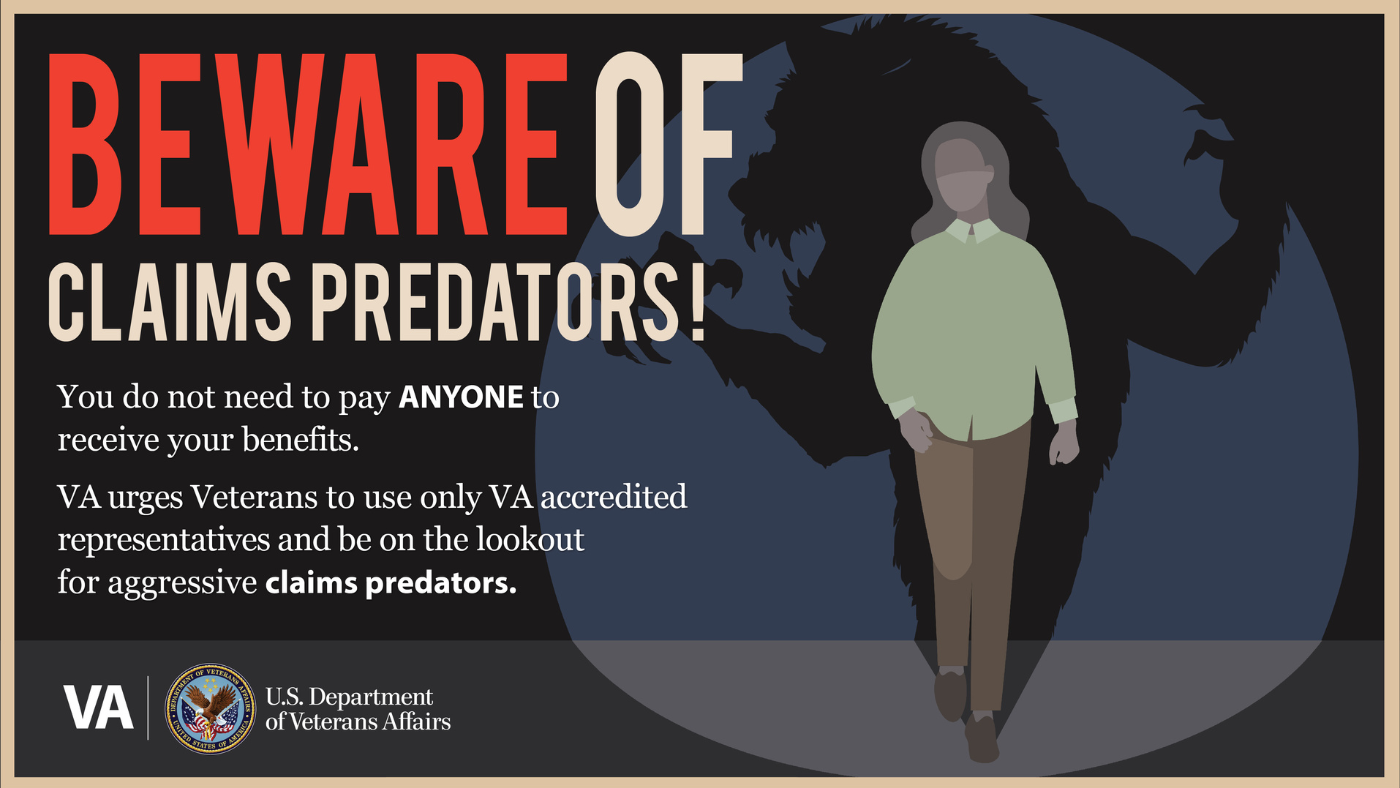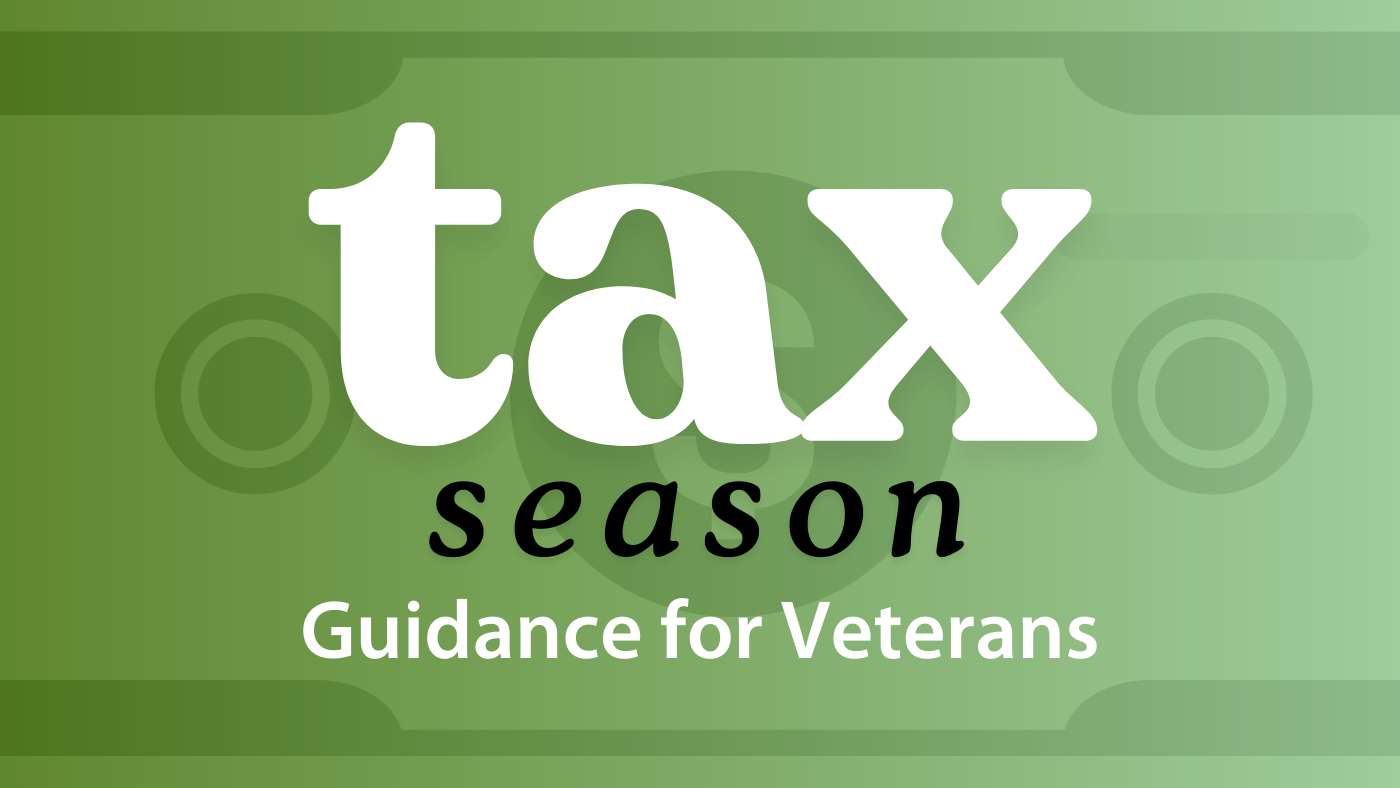The process of applying for VA benefits can be complex, and we understand that Veterans often rely on assistance to navigate the process. Unfortunately, among some of the resources, there are claims predators who take advantage of Veterans and their vulnerabilities by offering help with their benefits claims while exploiting their trust and financial resources. These claims predators are a serious concern, but with proper knowledge and vigilance, Veterans can defend themselves against such aggressive exploitative tactics.
To avoid falling victim to claims predators’ scams, VA advises Veterans to take the following precautions when applying for VA benefits:
- Don’t pay unlawful fees: You should never pay a fee to file an initial claim for benefits. It is unlawful for anyone to charge a claimant a fee for preparing an initial claim.
- Empower yourself: Knowledge is your best defense against claims predators. Take the time to understand the benefits you are entitled to, the VA claims process and the resources available. Be aware of any policy changes affecting your benefits and stay informed of scams targeting them. By keeping yourself informed, you can make educated decisions and avoid scams.
- Seek reputable assistance: Working with VA accredited attorneys, claims agents and VSO representatives is crucial when seeking help with the VA benefits process. Only VA accredited representatives can help you with your benefits claim. By working with VA accredited individuals, you can ensure that you receive the best possible assistance with your claim.
- Be cautious of unsolicited offers: Claims predators may contact you via mail, email or phone, claiming to provide you with an expedited claims process or guarantee a 100% disability rating. Remember, only VA can determine disability ratings. If you receive an offer that seems too good to be true, research and verify the individual’s accreditation.
- Review documents thoroughly: Before signing any documents related to your benefits, carefully review forms, ensure you understand the terms and conditions, and always keep copies for yourself. Watch out for vague language, hidden fees or clauses that could jeopardize your benefits. Do not sign a fee agreement with someone who will not sign a VA representation form (VA Form 21-22 or 21-22a) and never sign a blank form for someone else to complete later.
- Protect your personal identifiable information (PII): Be cautious of sharing sensitive information with unknown or unaccredited individuals and be wary of requests for payment or personal data. Remember, you never have to make fee payments yourself for any supplemental claim, higher-level review or appeal to the Board. You can use a direct-payment fee agreement where VA will send a portion of past-due benefits awarded to the claimant to pay the representative for you. If someone is unwilling to be paid that way, you should question why.
- Report suspicious activity: If you suspect a representative acted unlawfully or unethically while assisting you in filing a VA benefits claim, file a report and learn more at www.vsafe.gov or by calling 833-38V-SAFE.
Safeguarding your benefits from claims predators requires vigilance, knowledge and proactive measures. By staying informed, seeking reputable assistance and recognizing the warning signs, you can defend yourself against claims predators and ensure you receive the benefits you have rightfully earned. Check out VA’s fraud prevention page to learn more.
Topics in this story
More Stories
The increased financial compensation associated with SMC benefits and the visibility of Purple Heart recipients can attract scammers looking to exploit Veterans.
After using the G.I. Bill, Army Veteran Adam Boren found his connection to his community through soccer.
Whether a Veteran files their taxes independently or uses a tax professional, VA encourages Veterans and their loved ones to review the following tips and resources to both help them navigate the tax season with confidence and to avoid tax season scams.






it is imposable for a handicapped vet to survive in this digital age, i can not leave my home cause im in a wheelchair and you will not get me a handicapped van to travel in for my needs. so i just fall pray to every scam out there and lose my benefits a bit at a time. i pray i do not lose my home because of it but its getting close. i will be on the street soon and that means i will die. i am a camp Lejeune poisoned vet who has been in a wheelchair since 2004 and denied benefits till last year and then only rated at 30%, my home is 6 months behind and i am overdrawn $500 in the bank. i expect i will die when they try to remove me from my home. it is incredible that my service has taken my life in so spectacular a fashion.
II have been informed that the process that I need to get the information that I need. I will follow up with your information this week. Thank you.
Can’t protect a claim that’s denied…..js.
Do you have this in a PDF?
It would be nice to print and have it available to our clients.